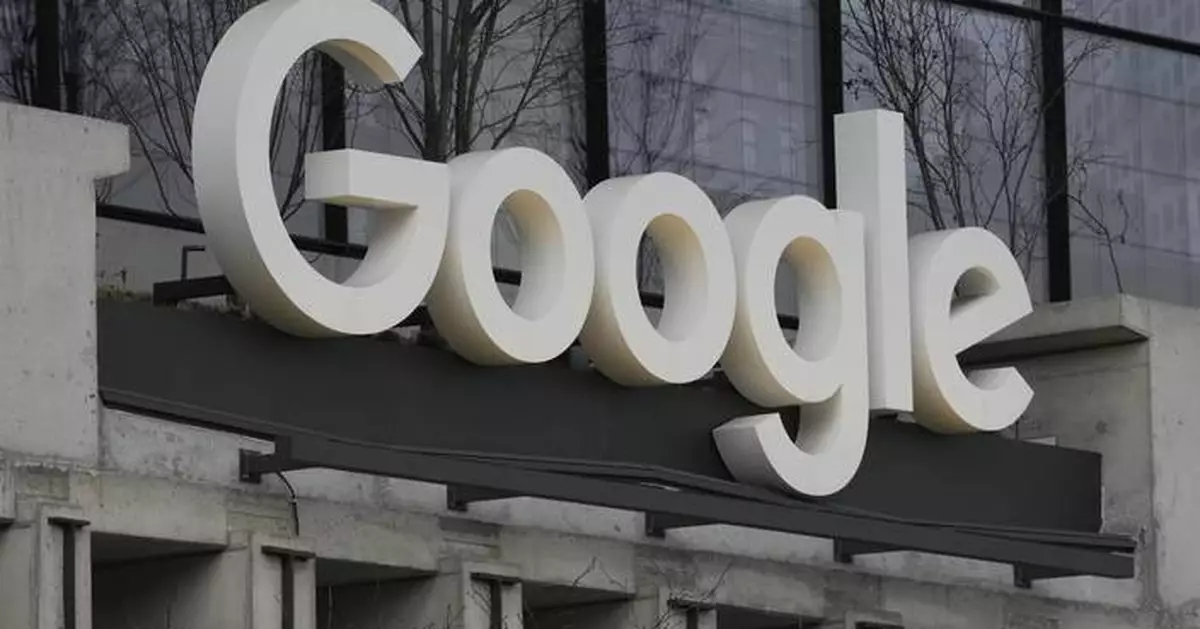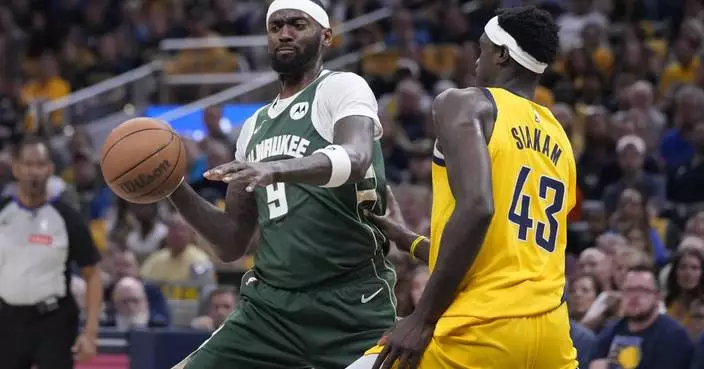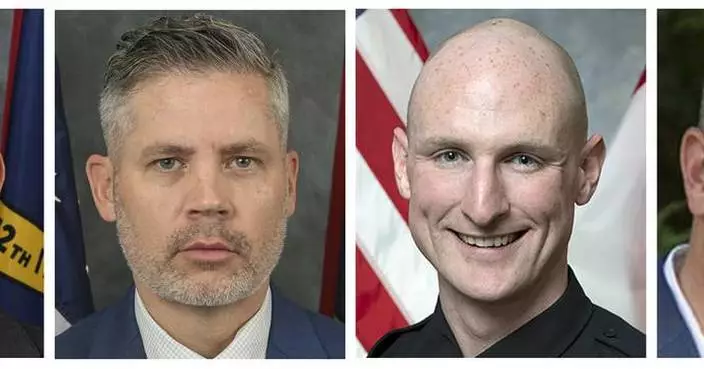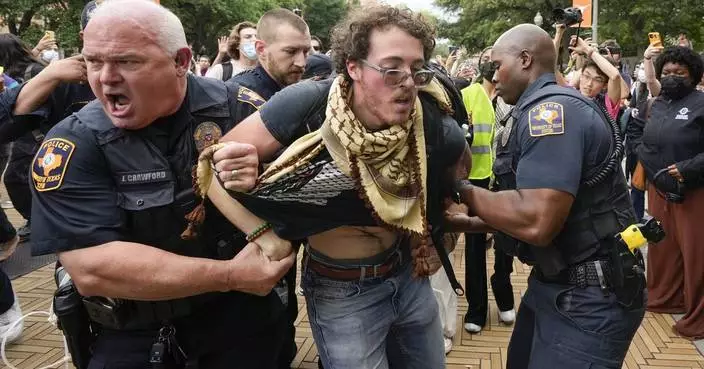NEW YORK (AP) — Although a private browsing mode known as “Incognito" in Google's widely used Chrome browser has been available for nearly a decade, a legal settlement involving the way it works has cast new attention on this commonly available setting.
The settlement disclosed Monday in a federal court is primarily designed to ensure that users who use Incognito mode in Chrome get more privacy while surfing the internet than they had been previously.
Although Google isn't paying any money to consumers, the lawyers who filed the case in June 2020 believe the stricter safeguards will be worth $4.75 billion to $7.8 billion, based on the estimated value of the personal information protected by the settlement.
Nearly every major browser now has a private browsing mode. Here's a look at what they do and don't do for surfers.
When you turn on your browser's private mode, think of it as a fresh start.
So all of the advantages of browser personalization won’t be there: No suggestions based on your history, autocomplete will be largely unavailable and you will have to sign into your accounts.
As soon as you close your incognito window, your internet browser wipes the browsing history and any cookies that have been created during that session, according to the Mozilla Foundation, meaning -- locally to your device — your browser won’t remember where you’ve been or store any information you filled into any forms.
This kind of experience does have its uses. For example, making sure searches on more sensitive topics, like health care, don’t show up in your browsing history (which may invite related ads to start showing up). Or perhaps you'd like added protection when surfing — or logging onto accounts — on public computers, like at the library or a hotel business center.
Remember that the point of a private browsing mode is not to cover the fact that you visited a website but to cover the fact that you visited that site from your device.
Incognito modes generally do not prevent the websites you visit from seeing your location, via your IP address, or stop your internet service provider from logging your activities. As long as your IP address is visible, the Mozilla Foundation says your identity and activity remain fully exposed to search engines and third parties — think advertisers — regardless of what mode your browsing in.
To illustrate this point, Google recently agreed to purge billions of records containing personal information collected from people using incognito mode to surf the internet as part of a settlement over a lawsuit accusing the search giant of illegal surveillance. It also has to be make more prominent privacy disclosures in its terms of service to let people know about its data collection efforts.
Google will also be required to set up Incognito mode so users will be able to automatically block “cookies” that enable third parties to track them during the next five years if a federal judge approves the settlement after a court hearing scheduled July 30.
And any files you may download or bookmarks you create during a private session are not wiped at the end of your session, meaning you are still susceptible to computer viruses, malware and keystroke loggers.
A virtual private network can run interference for your IP address, making it harder for sites to track you. But the use of VPNs also raises additional security questions, especially for users who go with a free or cheap VPN provider they haven’t carefully vetted.
Some search engines like DuckDuckGo are more privacy focused and have pledged to never collect personal information or track people entering queries on its site. And certain browsers like Tor are designed to make it more difficult for third-party trackers and advertisers to track you.
Even with all of these options, just remember that it’s unlikely that you’re truly anonymous online.

Browsing in incognito mode doesn't protect you as much as you might think

Browsing in incognito mode doesn't protect you as much as you might think

FILE - The Google building is seen in New York, Feb. 26, 2024. Google has agreed to purge billions of records containing personal information collected from more than 136 million people in the U.S. surfing the internet through its Chrome web browser as part of settlement in a lawsuit accusing it of illegal surveillance. (AP Photo/Seth Wenig, File)
NEW YORK (AP) — Donald Trump this week lamented the possibility that Columbia University's pro-Palestinian protesters could be treated more leniently than the rioters who stormed the U.S. Capitol in January 2021, marking the second time the former president has invoked the ongoing campus protests to downplay past examples of right-wing violence.
Speaking Tuesday in the hallway outside a Manhattan courtroom where his criminal hush money trial is taking place, Trump questioned whether student demonstrators who had seized and barricaded a campus building, some of them vandalizing it in the process, would be treated the same way as his supporters who attacked the Capitol on Jan. 6 to stop certification of the presidential results.
“I think I can give you the answer right now,” he said. “And that’s why people have lost faith in our court system.”
Trump's remarks demonstrate anew how he and the Republican Party have tried to minimize the deadliest assault on the seat of American power in over 200 years, arguing that violent or criminal behavior by the left is a larger threat. Trump has called the rioters “unbelievable patriots” and has talked openly about the prospect of issuing pardons if he wins a second term.
His comments come as he runs to reclaim the White House and is juggling charges in four separate criminal cases. They promote his position that the charges are being orchestrated by Democrats to keep him out of the White House and that he and his supporters are the targets of political persecution by a fundamentally corrupt justice system.
"They took over a building. That is a big deal,” Trump said of the Columbia protesters. “And I wonder if what’s going to happen to them will be anything comparable to what happened to J6, because they’re doing a lot of destruction, a lot of damages, a lot of people getting hurt very badly. I wonder if that’s going to be the same kind of treatment they gave J6. Let’s see how that all works out.”
Hours later, New York police stormed the campus building the protesters had occupied and arrested several dozen people. The scene prompted Trump during a Wednesday rally in Wisconsin to characterize New York as being “under siege” the night before.
New York City Mayor Eric Adams said those who had taken over the Columbia building would face charges that included burglary, trespassing and criminal mischief. In the Jan. 6 attack on the U.S. Capitol, more than 1,350 people have been charged with federal crimes. Over 800 have been sentenced, with roughly two-thirds receiving terms of imprisonment ranging from a few days to 22 years. According to the Justice Department, 89 have pleaded guilty to federal felony charges of assaulting law enforcement officers.
Legal scholars and political scientists said Trump's strategy could help his campaign, but point out there are stark differences between Jan. 6 and the campus protests against the Israel-Hamas war. College students have gathered in encampments on Columbia and other campuses to call for a ceasefire and demand their universities cut financial ties to Israel.
“The Columbia protests are not aimed at stopping the peaceful transition of power following an election, so they do not threaten the functioning of U.S. democracy,” said Richard Hasen, an expert in election law and professor at the University of California, Los Angeles law school.
Hakeem Jefferson, an assistant professor of political science at Stanford University, said the demonstrations at a Columbia building that also was occupied during a civil rights protest in the 1960s reflect a long tradition of college students “pushing on the conscience” of their country.
“This is a tradition of protest. Disruptive, to be sure. Annoying to university administrators, to be sure," Jefferson said. “To the contrary, what happened on January the 6th was a violent attempt to disrupt the peaceful transfer of power. There is no tradition of that in American history. It is unprecedented. And that is why we should, of course, treat it differently.”
Some of the recent campus protests have erupted into clashes with police, and hundreds of students have been arrested. Protesters in some parts of the country have hurled water bottles or other objects at officers, and police have deployed chemical agents to disperse crowds or carried them away amid screams.
Trump's remarks build on a strategy of Republicans and conservative social media influencers to reframe what constitutes an insurrection as part of an ongoing attempt to influence the public's perception of Jan. 6. They have used the term to describe public demonstrations and even the 2020 election that put Democrat Joe Biden in the White House.
Some social media users on Tuesday called the takeover of Columbia’s Hamilton Hall an “insurrection,” and said the media wouldn’t describe it that way because the views of the protesters aligned with the political left. Fox News used the reference in an article Tuesday about the student protesters, reporting that “the insurrection began at approximately 12:30 a.m.”
Legal experts say the term “insurrection” has a specific meaning — a violent uprising that targets government authority — and that protests that do not involve an attempt to dismantle or replace a government shouldn't be classified that way.
Tuesday was the second time in a week that Trump has compared the campus protests to past examples of right-wing violence.
Last week, he claimed the deadly 2017 rally in Charlottesville, Virginia, where torch-wielding white supremacists chanted “Jews will not replace us” was “nothing” compared to the antisemitism displayed at the campus protests.
“The hate wasn't the kind of hate that you have here,” he said.
He returned to the reference in his comment outside court on Tuesday, saying, “Charlottesville is peanuts compared to what you’re looking at now.”
The campus protests have pitted students against one another, and videos show instances of demonstrators making antisemitic remarks and violent threats. Some Jewish students say the hateful rhetoric has made them afraid to set foot on campus.
Meanwhile, organizers of the protests, some of whom are Jewish, say it is a peaceful movement aimed at defending Palestinian rights and protesting the war.
Columbia University on Tuesday said students occupying Hamilton Hall would face expulsion.
“Protesters have chosen to escalate to an untenable situation — vandalizing property, breaking doors and windows, and blockading entrances — and we are following through with the consequences we outlined yesterday,” said Ben Chang, the university's spokesperson.
Associated Press writer Melissa Goldin in New York contributed to this report.
The Associated Press receives support from several private foundations to enhance its explanatory coverage of elections and democracy. See more about AP’s democracy initiative here. The AP is solely responsible for all content.

Pro Palestinian students lock arms, sing and chant as they braced for New York Police Department officers to raid campus after Columbia University President Minouche Shafik called on the NYPD to dismantle encampments and remove individuals from Hamilton Hall, Tuesday, April 30, 2024 in New York. (Seyma Bayram via AP)
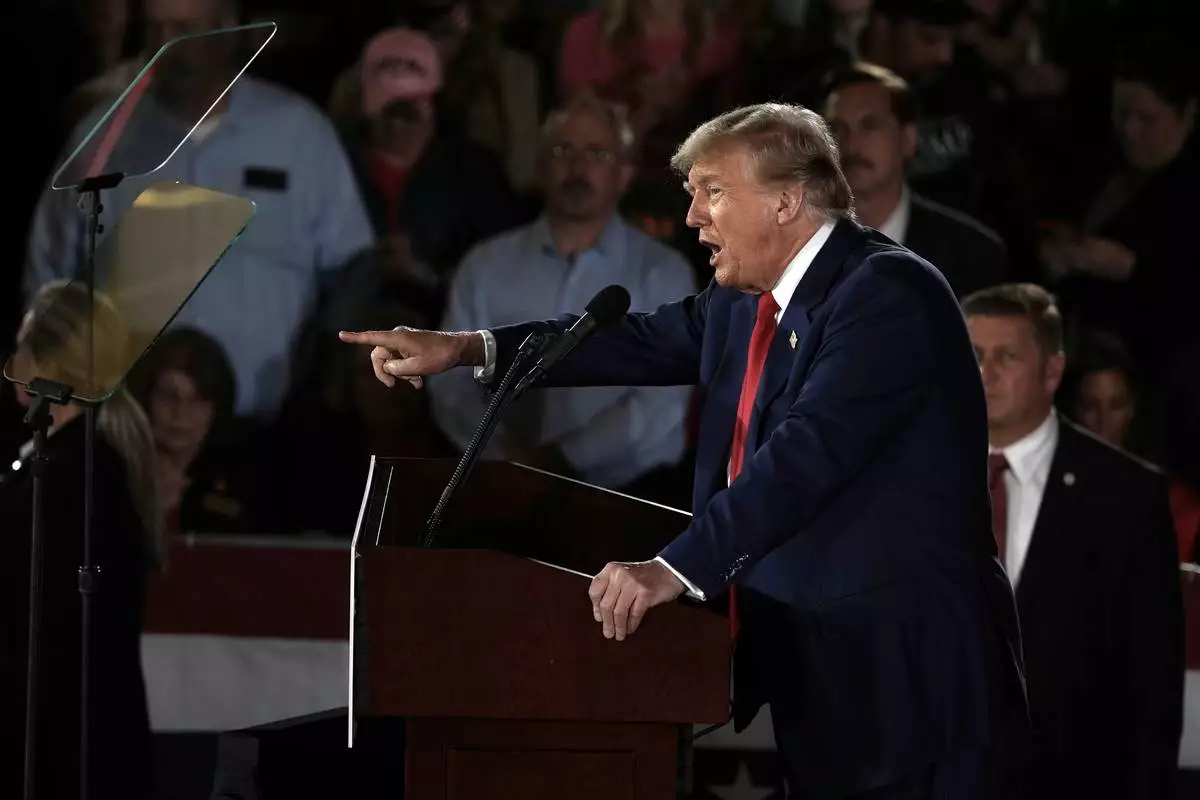
Republican presidential candidate former President Donald Trump speaks at a campaign rally on Wednesday, May 1, 2024, at the Waukesha County Expo Center in Waukesha, Wis. (AP Photo/Morry Gash)

A student protester pulls up a crate filled with foot and supplies from a balcony of Hamilton Hall on the campus of Columbia University, Tuesday, April 30, 2024, in New York. Early Tuesday, dozens of protesters took over Hamilton Hall, locking arms and carrying furniture and metal barricades to the building. Columbia responded by restricting access to campus. (AP Photo/Mary Altaffer, Pool)

Student protesters camp near the entrance to Hamilton Hall on the campus of Columbia University, Tuesday, April 30, 2024, in New York. Early Tuesday, dozens of protesters took over Hamilton Hall, locking arms and carrying furniture and metal barricades to the building. Columbia responded by restricting access to campus. (AP Photo/Mary Altaffer, Pool)

Students with the Gaza Solidarity Encampment block the entrance of Hamilton Hall at Columbia University after taking it over on Tuesday, April 30, 2024 in New York. Columbia Students for Justice in Palestine called for mobilization close to midnight. Students have been occupying part of campus since April 17, calling for the university to divest from institutions that have ties to Israel. (Marco Postigo Storel via AP)

Students with the Gaza Solidarity Encampment block the entrance of Hamilton Hall at Columbia University after taking over it on Tuesday, April 30, 2024 in New York. Columbia Students for Justice in Palestine called for mobilization close to midnight. Students have been occupying part of campus since April 17, calling for the university to divest from institutions that have ties to Israel. (Marco Postigo Storel via AP)

Former President Donald Trump walks outside the courtroom of his trial at Manhattan criminal court, Tuesday, April 30, 2024, in New York. His attorney, Todd Blanche, is on the right. (Curtis Means/Pool Photo via AP)

Students with the Gaza solidarity encampment block the entrance of Hamilton Hall at Columbia University after taking over it on Tuesday, April 30, 2024 in New York. Columbia Students for Justice in Palestine called for mobilization close to midnight. Students have been occupying part of campus since calling for the university to divest from institutions that have ties to Israel. (Marco Postigo Storel via AP)





